Viviani running out of road at the Giro d'Italia
Another second place for Italian champion in Modena sprint
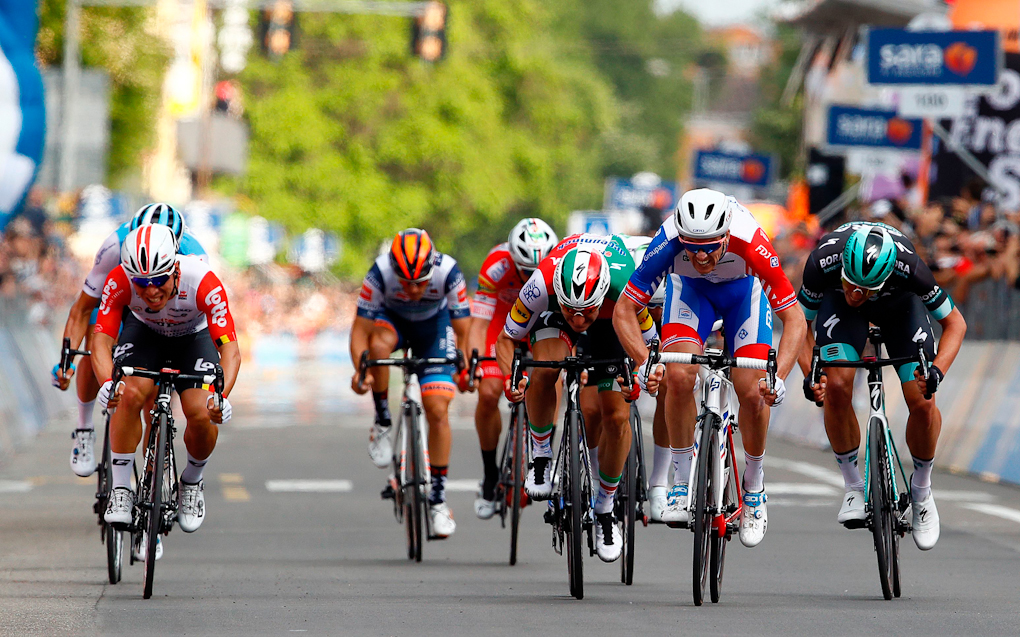
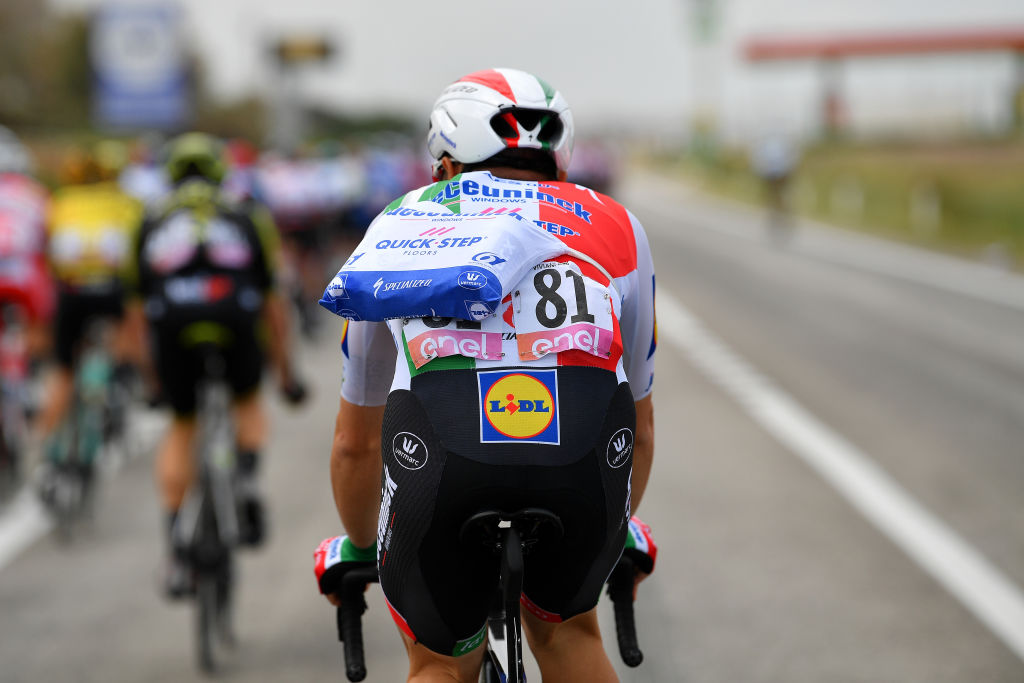
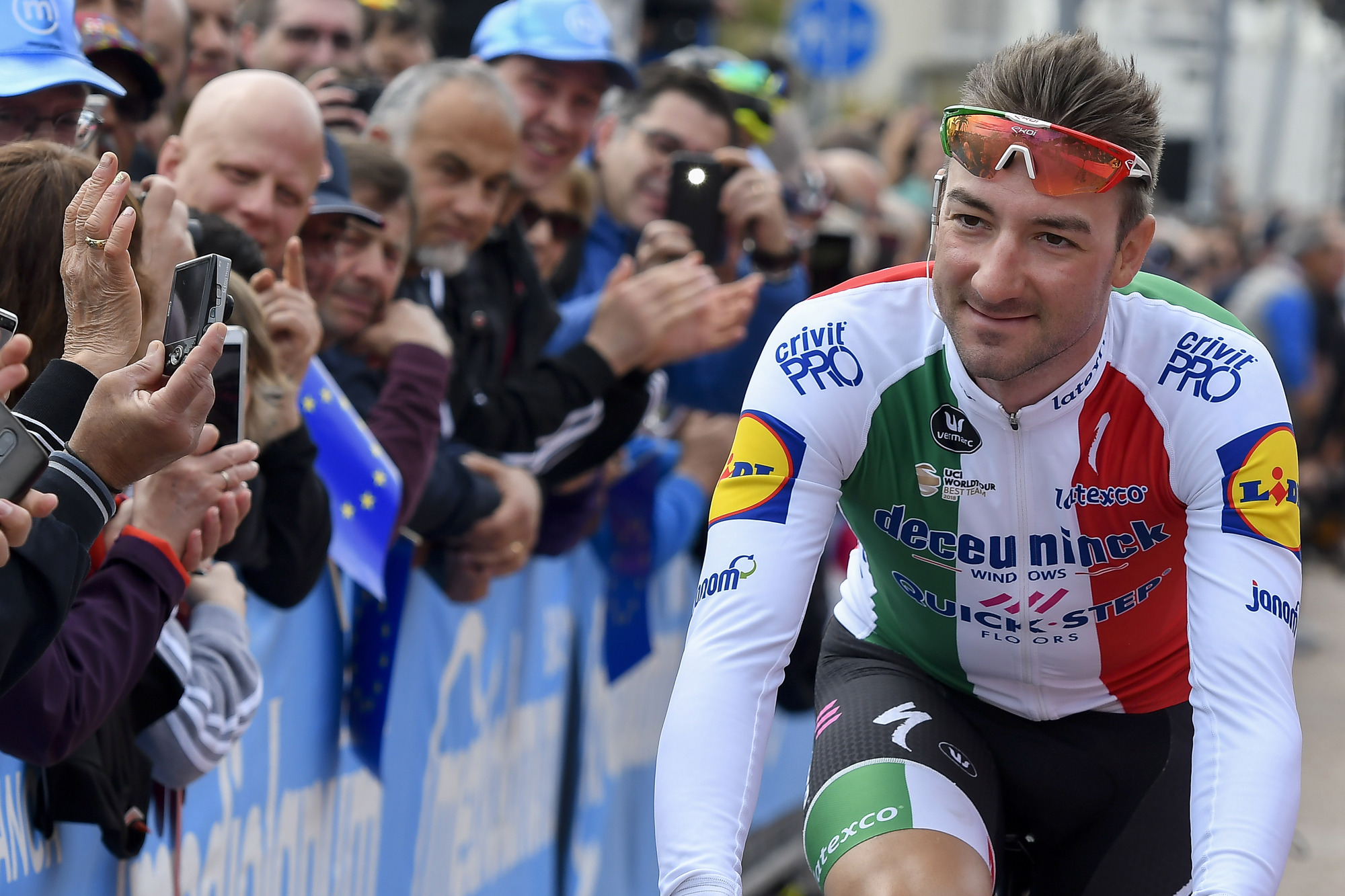
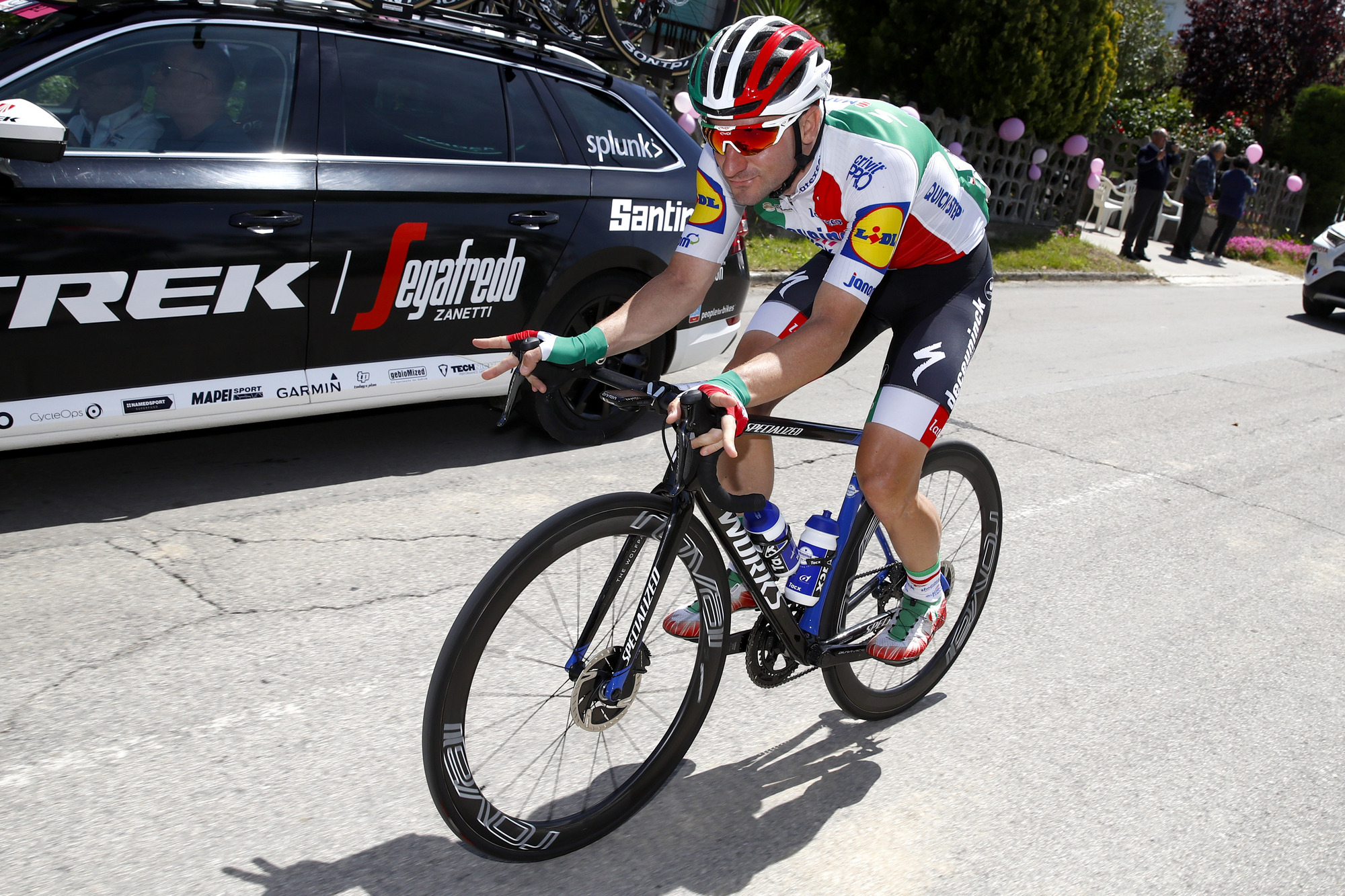
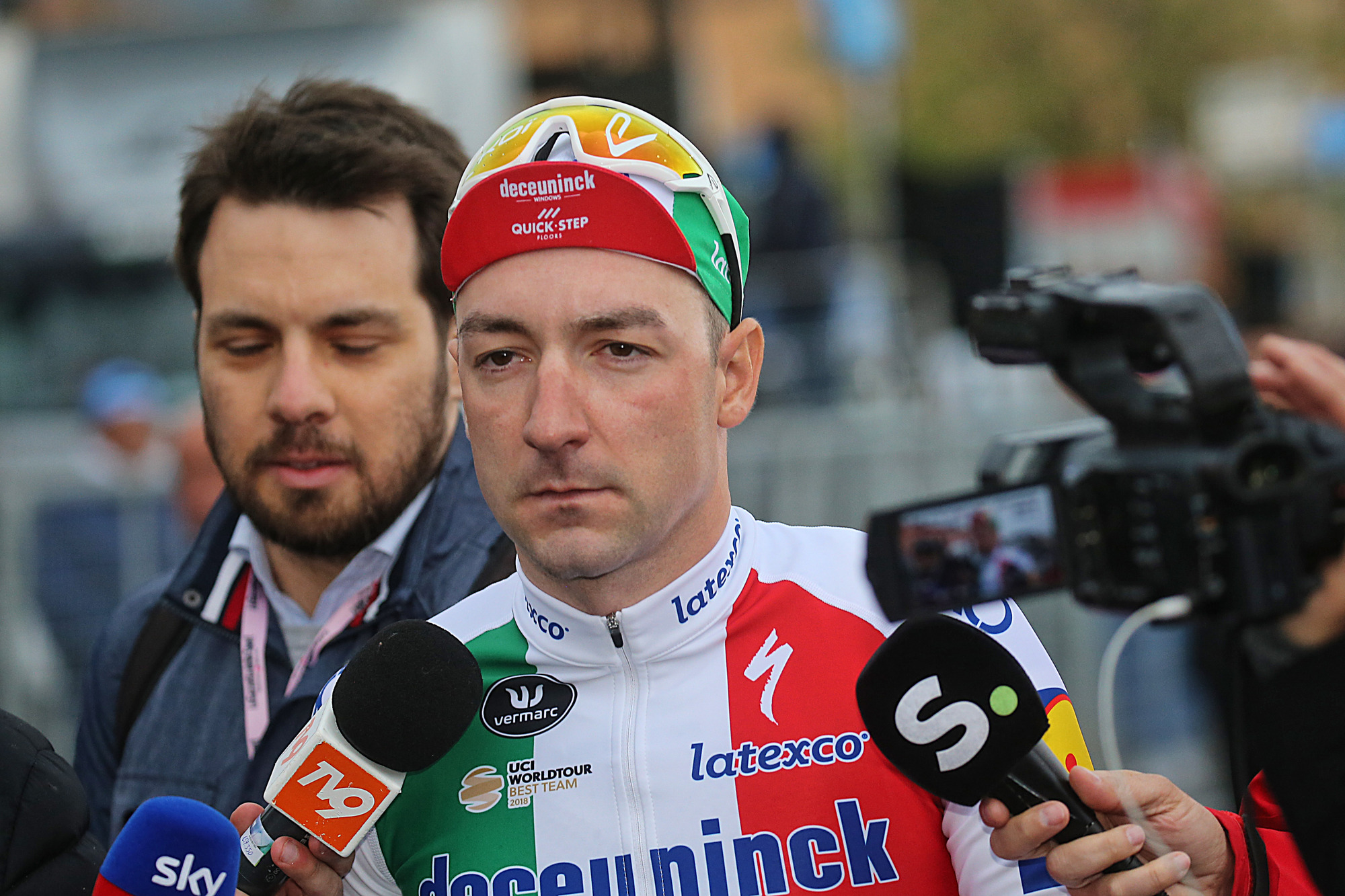
After a frustrating opening to the Giro d'Italia, during which he was stripped of stage victory in Orbetello and placed second on two other occasions, Elia Viviani (Deceuninck-QuickStep) looked to hit the reset button during Monday's rest day in Riccione. "My Giro starts now," he told Il Corriere della Sera.
A year ago, Viviani's sparkling Giro was garlanded with four stage wins and the points classification. This time out, his race has been pockmarked by near misses and disappointment. Slender are the margins in the sprint game, but Viviani had a chance to dream it up all over again in the second week, where the flat run from Ravenna to Modena lent itself most obviously to the fast men.
When the 1949 Giro visited Modena, the novelist Dino Buzzati explained the torpor of that transitional stage by describing the flatlands of Emilia as "unsuited to battle." While there was a meandering opening to stage 10 of this Giro, there was no such détente among the sprinters in the frantic closing kilometres in Modena.
A crash inside the final kilometre saw maglia ciclamino Pascal Ackermann (Bora-Hansgrohe) and Matteo Moschetti (Trek-Segafredo) come down, but Viviani still had to contend with Caleb Ewan (Lotto Soudal) and Arnaud Démare (Groupama-FDJ) in the inevitable bunch finish on Via Emilia.
Viviani parked himself on Ewan's wheel in the finishing straight, but though he had the speed to come around the Australian, he was unable to match the power of Démare. He had to settle for second place, his third of this Giro. Sitting on the steps of the Deceuninck-QuickStep bus in Parco Enzo Ferrari afterwards, Viviani was magnanimous in his praise for the stage winner Démare.
"It's another second place but I'm calm about it because Démare did a great sprint and he beat me," Viviani said. "When it's like that, there's nothing to complain about. We know that Démare is a quality rider. He’s here with the objective of winning a stage and taking home the maglia ciclamino, and he's made a big step towards that today. He did a great sprint."
Viviani managed to side-step the crash that took Ackermann out of the equation and he rejected the idea that the incident had any impact on the sprint itself. It was, Viviani explained, simply a drag race against Démare and Ewan, and the quickest man won.
Get The Leadout Newsletter
The latest race content, interviews, features, reviews and expert buying guides, direct to your inbox!
"I think I only just about dodged the crash, but it didn't affect my sprint. In the finale, I was on Ewan's wheel. It was a three-way battle and Démare got the best of it. Caleb went right, Démare went left and I went down the middle – and Démare won," said Viviani, who felt that Ackermann had caused the crash. "The maglia ciclamino had a bad fall. It seems like he touched a teammate's wheel. He probably should say sorry, but things like that happen."
The 50 points that Viviani was docked following his relegation in Orbetello effectively cost him any chance of defending his points title and also virtually ruled out any prospect of the Italian champion riding all the way to the end of the Giro in Verona. In Monday morning's Gazzetta dello Sport, Viviani vowed to stay on the race until he won a stage.
A cursory glance at the road book, however, shows that only two opportunities remain for the fast men. The first comes in Novi Ligure on Tuesday, while the second is a more flickering prospect, over a week away in Santa Maria di Sala on stage 18. To win there, Viviani will first have to cross the dark, mutinous peaks of the Alps.
"There's a chance tomorrow and there's a chance in Santa Maria di Sala so the Giro isn’t finished," Viviani said, though he knows he is fast running out of road.
"It's probably that my legs aren't as fast as the others' at the moment. Today was a real head-to-head and I lost it, so I'll have to find another solution."

Barry Ryan was Head of Features at Cyclingnews. He has covered professional cycling since 2010, reporting from the Tour de France, Giro d’Italia and events from Argentina to Japan. His writing has appeared in The Independent, Procycling and Cycling Plus. He is the author of The Ascent: Sean Kelly, Stephen Roche and the Rise of Irish Cycling’s Golden Generation, published by Gill Books.